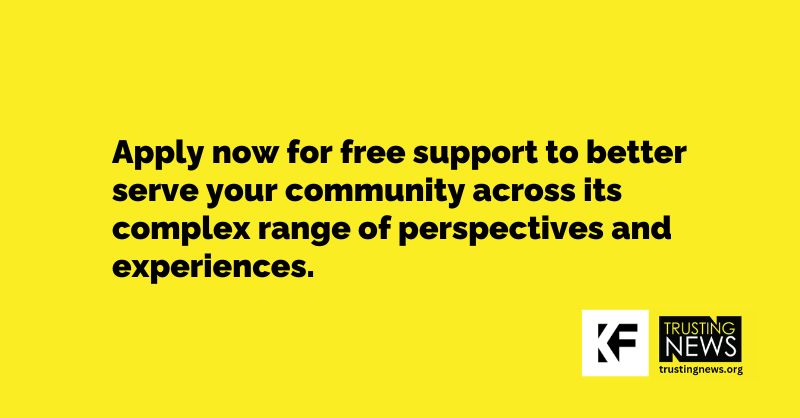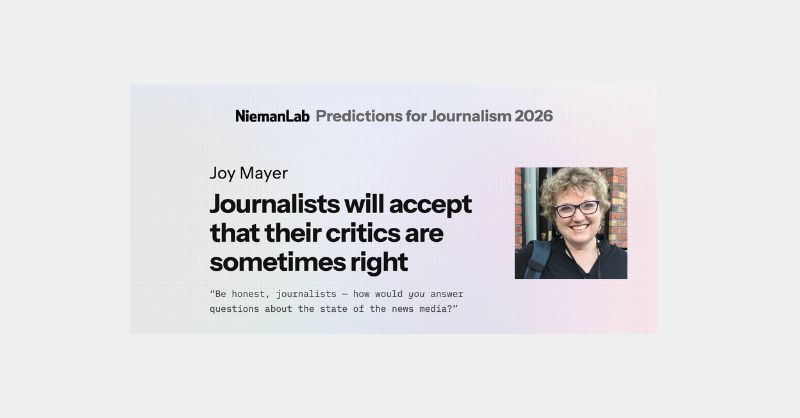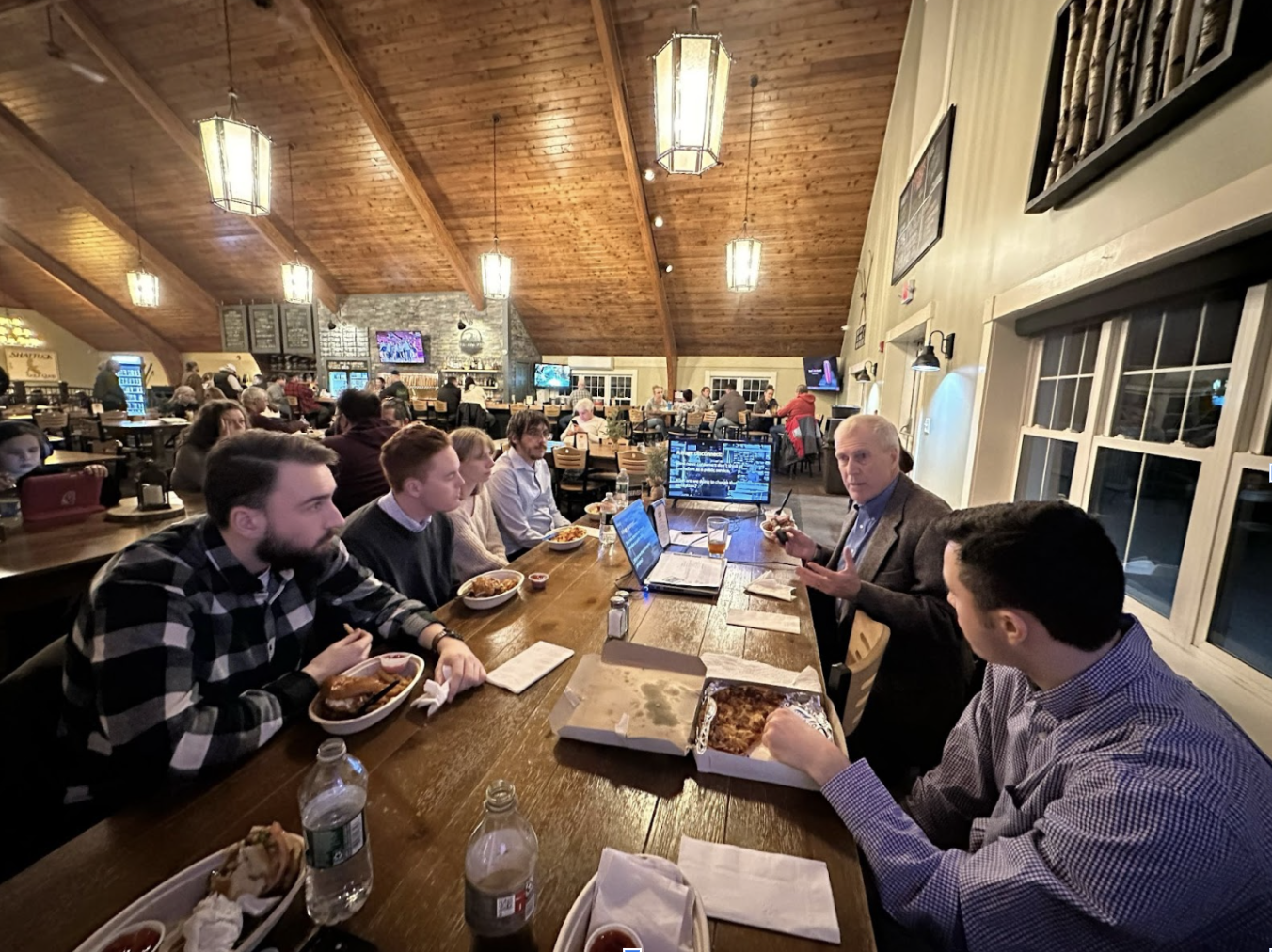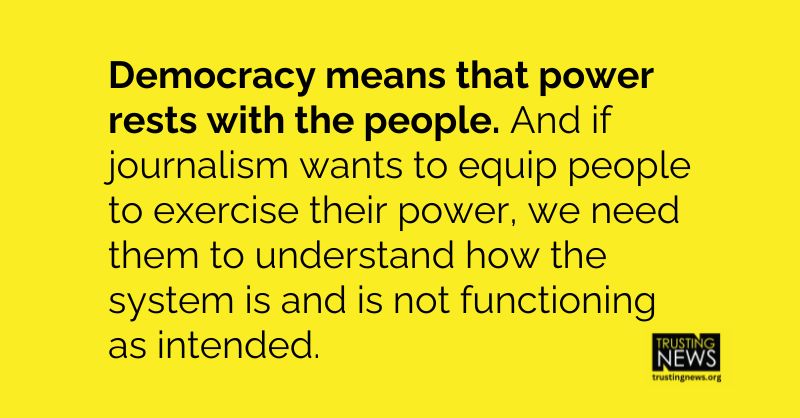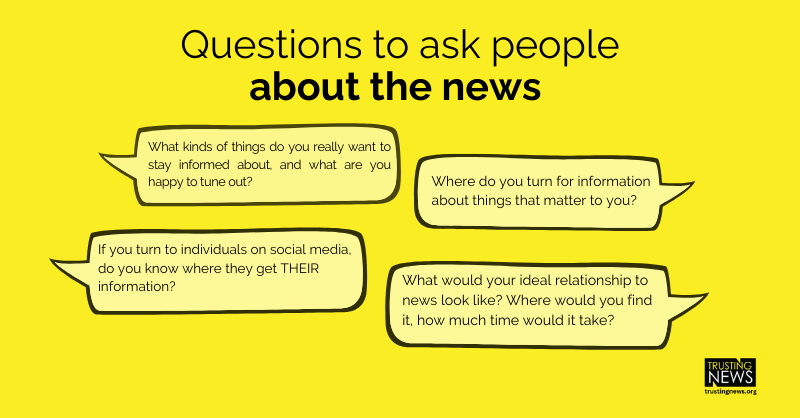
It’s that time of year again, when over turkey or tofurky so many of us attempt to navigate conversation about the state of the world with people we love dearly but don’t always spend hours with. And this year, there’s the extra special element of Thanksgiving coming just 23 days after an election. Unless you […]
Trust Tips: Learn how your friends gobble up (or avoid) the news
It’s that time of year again, when over turkey or tofurky so many of us attempt to navigate conversation about the state of the world with people we love dearly but don’t always spend hours with.
And this year, there’s the extra special element of Thanksgiving coming just 23 days after an election. Unless you find yourself with a group of people who all see the world the same way — or with one that has a formal or informal Don’t Ask Don’t Tell policy about anything controversial like my Thanksgiving hosts this year do — it’s likely the state of both politics and the media might come up.
Let’s talk about how to get through it. We have two quick suggestions, then a third we want to encourage you to really lean into this year.
1. Show some humility.
Validate and agree with the idea that not all journalism is responsible and ethical. I can’t argue with some of what I hear from my own friends and family, and it’s gotten easier over the years to empathize and even agree with them.
Journalism *does* often share extreme views and further polarize and divide people. It *does* often come from a liberal, big city, coastal perspective that feels out of touch. It can be hard to understand. It makes everything seem urgent and is completely overwhelming. (Breaking news: It’s Thanksgiving!)
While it’s fine to correct them, try to achieve a spirit of empathy more than defensiveness.
2. Make it personal.
When people make broad statements about the media, bring the conversation back to your personal passion and integrity. Talk about your own ethics and principles. Share your passion for the work and motivation for doing it.
Consider also sharing where you turn for information. Can you tell them about any nonprofit news outlets in their area that they might not know about? Any favorite newsletters or podcasts to recommend? I often find myself recommending NPR’s app (instant, efficient top headlines in audio!) and Tangle News really often.
3. See what you can learn about how friends and family consume news.
What if you thought of your Thanksgiving event as an informal focus group — a chance to ask people about their relationship to journalism?
I don’t mean you should make them feel interrogated or put on the spot. But when someone says they’re exhausted from trying to follow the news, what if you responded by asking how else it makes them feel? And whether they’ve found anywhere to turn that is a better fit?
Here are some sample questions to keep handy. Then read on to see how we think the 3,097 people subscribed to the newsletter could be OUR focus group!
- How does the news make you feel?
- What kinds of things do you really want to stay informed about, and what are you happy to tune out?
- Where do you turn for information about things that matter to you? Can you get specific about news outlets, channels, newsletters, or people you trust?
- If you turn to individuals on social media, do you know where they get THEIR information, and how they know what they know?
- What would your ideal relationship to news look like? Where would you find it, how much time would it take, how would you know when to step away, etc.?
Do you feel like you want to talk about election news? If so, here are some things we’d love to ask everyone we know:
- Were you able to find the information you needed to decide how to vote? Where did you find it?
- Were you interested in the results of state or local elections? If so, where did you turn for those results?
- How have you felt about news coverage since the election? Have you found any post-election analysis or coverage useful?
We want to hear from you!
Please hit reply if you’re up for sharing with us any of the following:
- What questions, skepticism or jabs do you expect to hear from folks over the holidays? How are you likely to respond?
- Do you have a go-to response when someone in your social network tells you they don’t trust the news?
- Where do you turn for help and advice about your own journalism and coverage? This could be specific organizations, newsletters, Slack spaces, or general social media platforms.
If you try out any of these questions or otherwise ask people about their relationship to the news, let us know what you learn!
We especially want to hear about any specific journalist creators or influencers you learned about. We’re working with Project C’s Liz Kelly Nelson to explore how the ethics and standards of more traditional news might apply to the creator economy, and we’re keen to follow and connect with creators doing it right. Hook us up!
At Trusting News, we learn how people decide what news to trust and turn that knowledge into actionable strategies for journalists. We train and empower journalists to take responsibility for demonstrating credibility and actively earning trust through transparency and engagement. Learn more about our work, vision and team. Subscribe to our Trust Tips newsletter. Follow us on Twitter and LinkedIn.
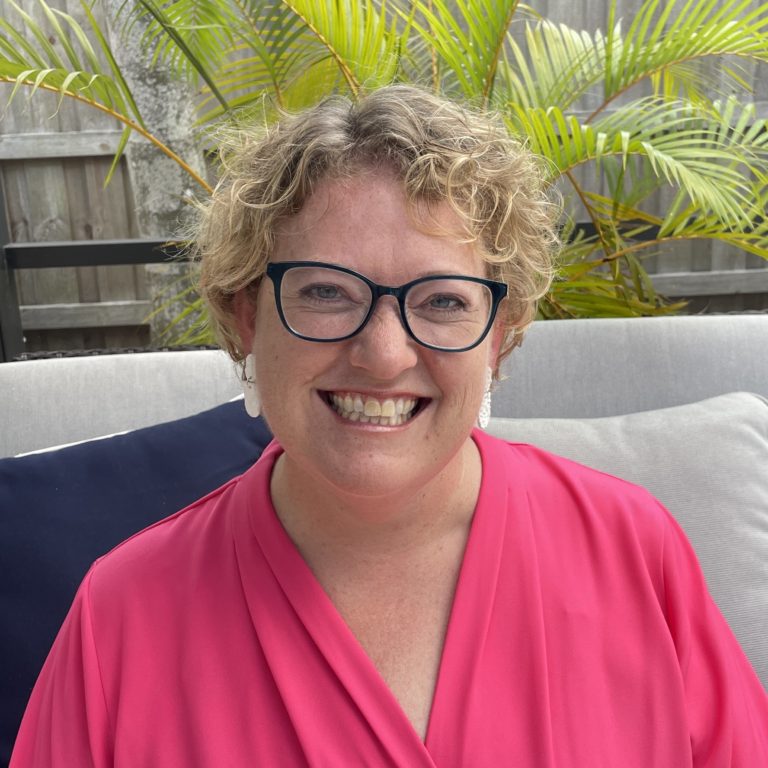
Executive Director Joy Mayer (she/her) founded Trusting News in 2016 after a 20-year career in newsrooms and teaching. She lives in Sarasota, Florida, and can be reached at joy@TrustingNews.org.
